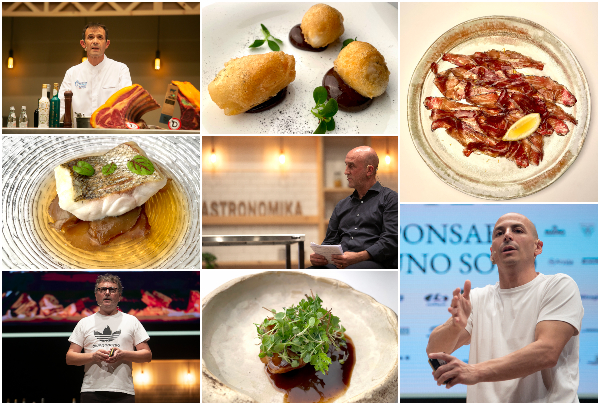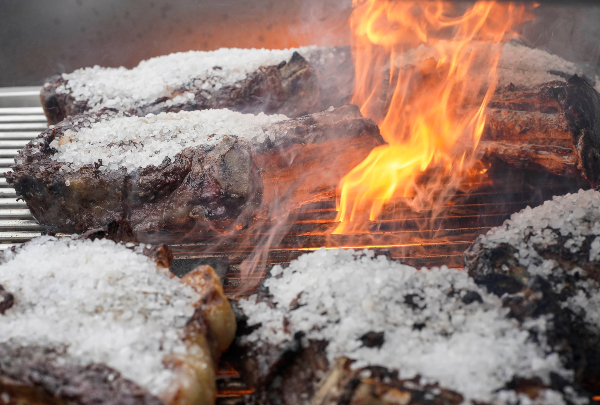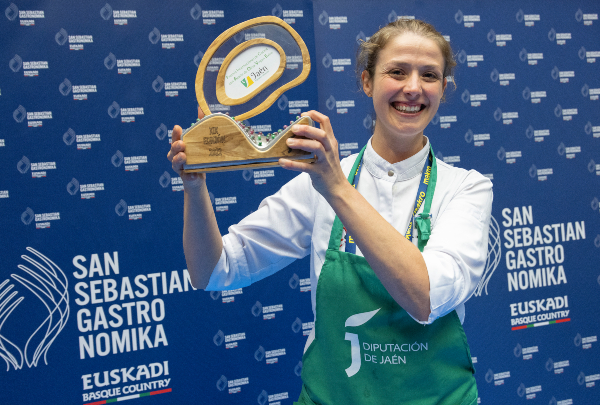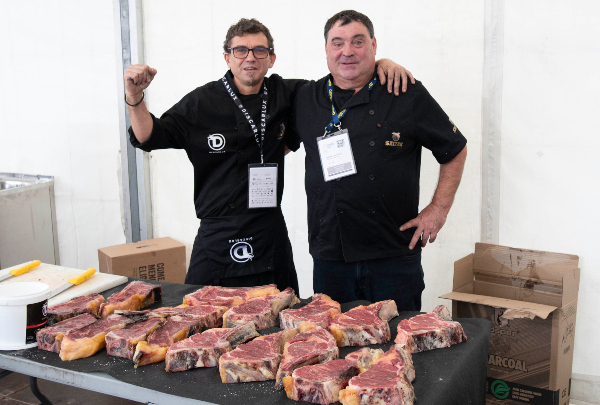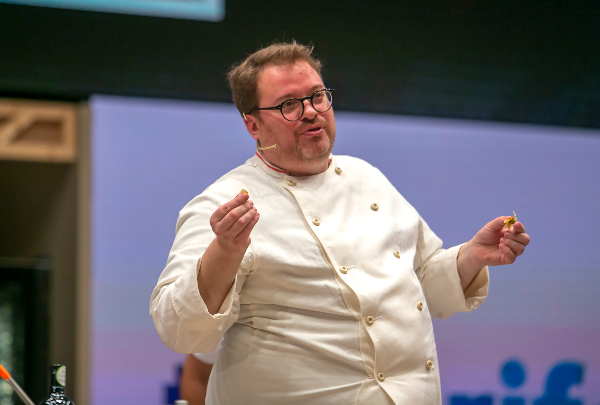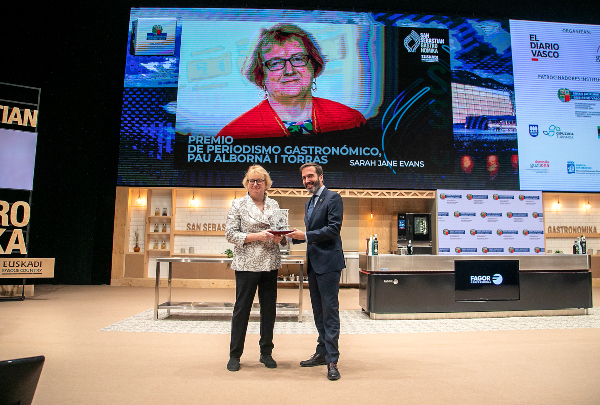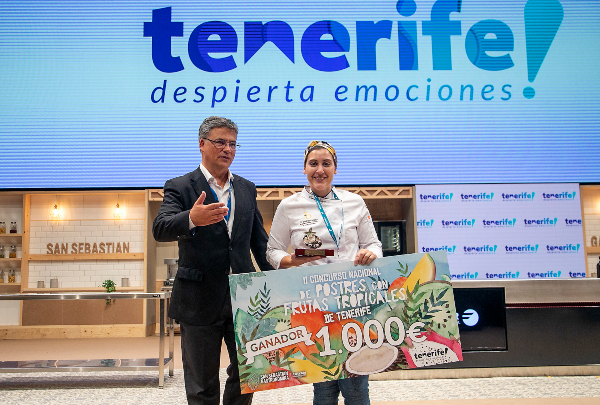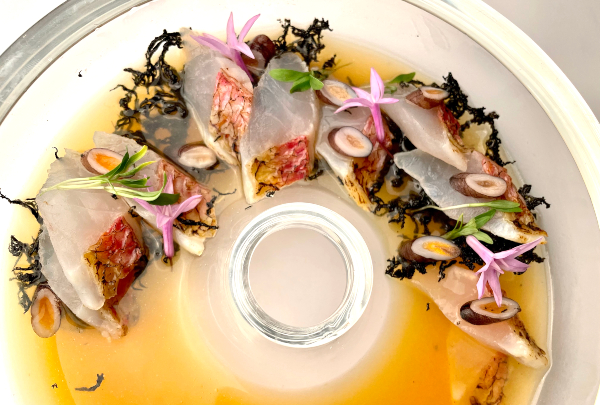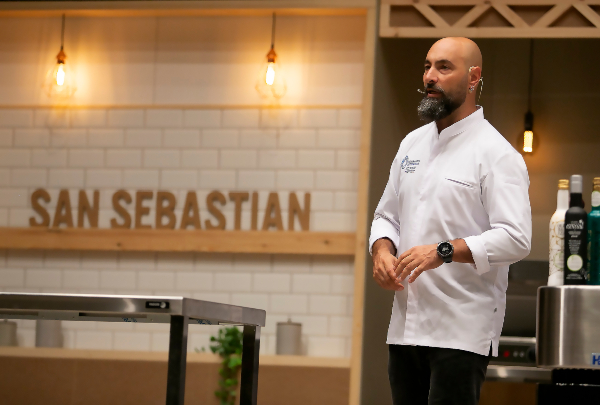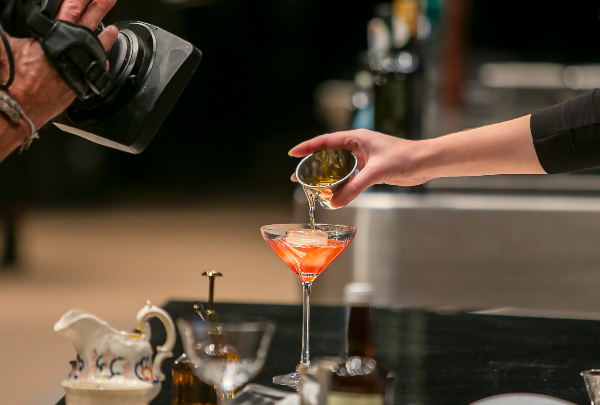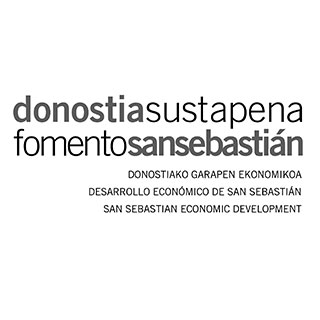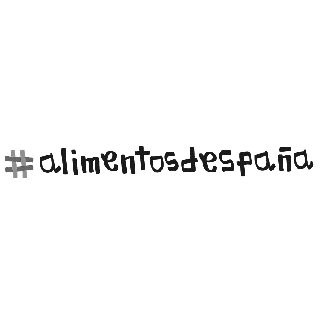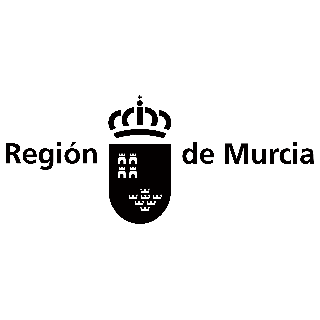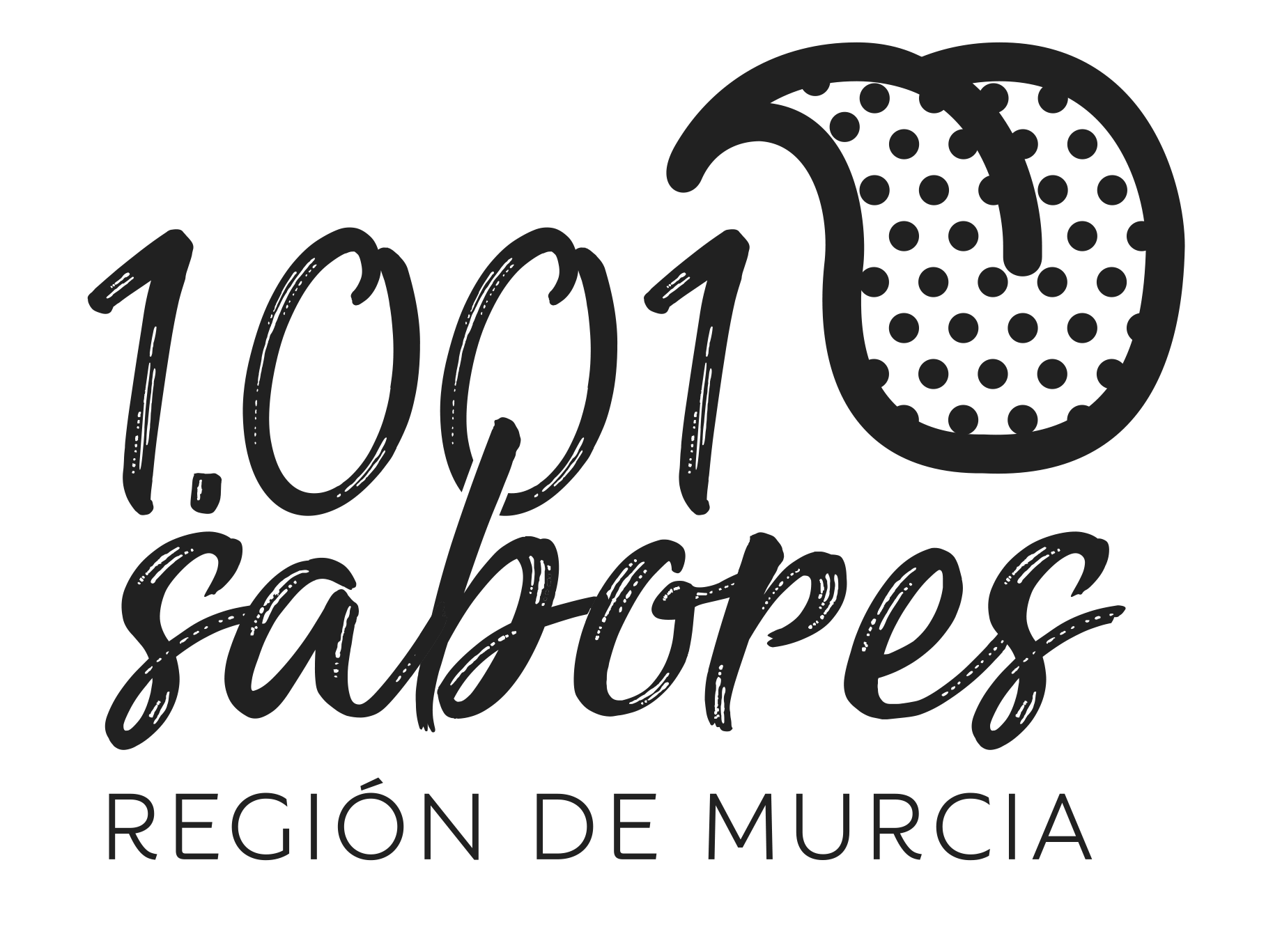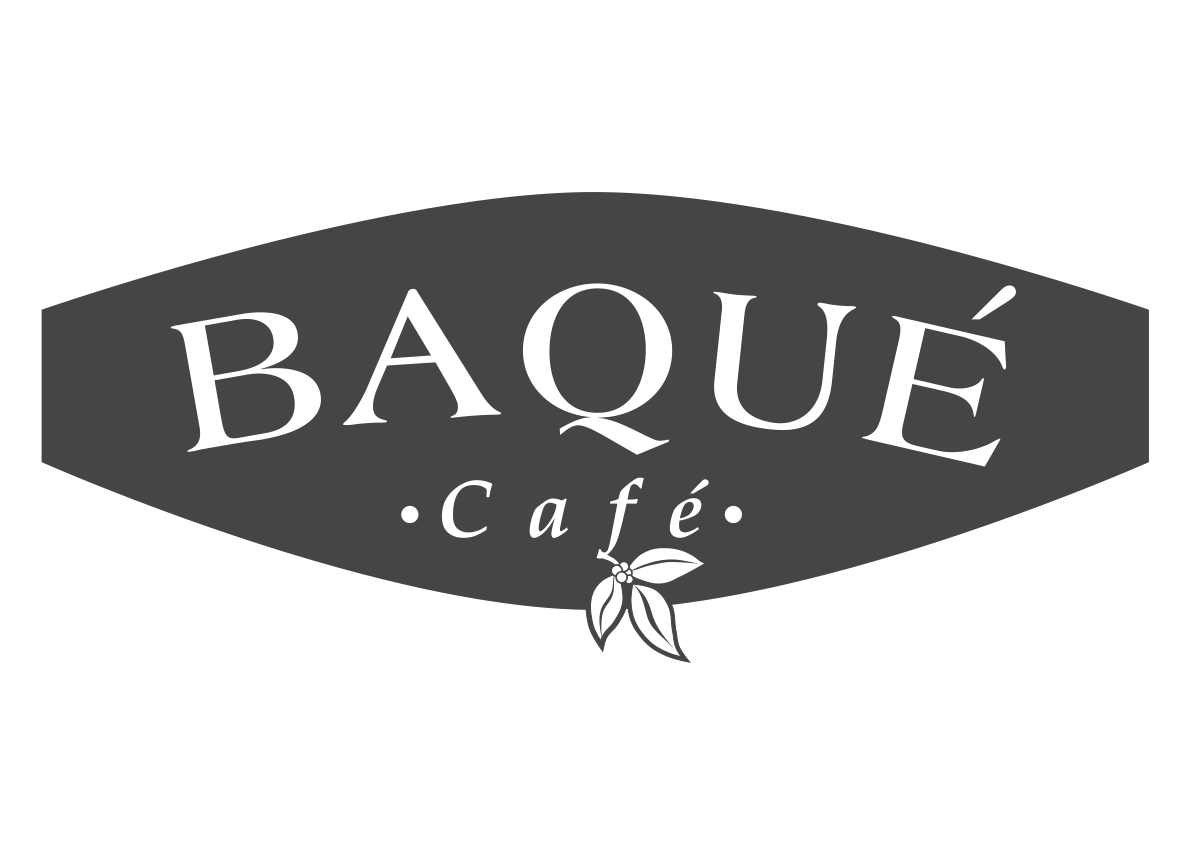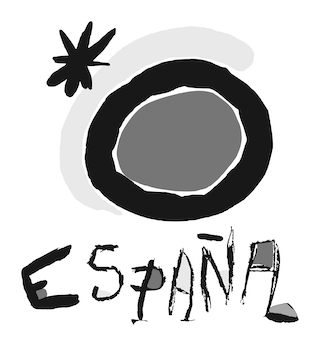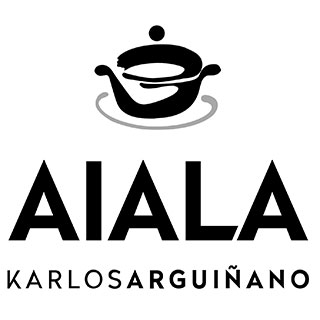News
The mistakes that launch projects

Josean Alija and Paulo Airudo share with the audience in the Auditorium the keys to maintaining a successful business: accepting failure as an opportunity to learn, not being afraid of change and not losing sight of the numbers.
Josean Alija is one of the chefs who is known for the apparent simplicity of his dishes that he also provides with identity. “We have picked up speed in these years and when you look back you can see that there have been challenges, hits and misses and trials, but the most important thing has been learning”, the chef explained as soon as he came on stage in the Auditorium. The cooking at Nerua is defined by concepts like essence, surroundings, produce, proximity... And he conveyed this at the congress through his recipes. “We make use of everything that nature gives us each season with produce that we like and satisfies us. We build our story with them. Flavour is important, and texture… and we work on these in a simple way as we try to touch the produce as little as possible,” Alija points out.
The first of the dishes that he prepared before the audience were some shrimps from Motril, with a leek confit with different herbs. “The pickle is something that we usually use in the cooking at the restaurant. We like to play with sweet crispy flavours…”, Alija explained. And he added that, “I think that life has to do with water and for this reason we include a lot of ingredients related to it”. While he was making the recipe, he stressed that although he gives the shrimp a grilled touch, this is just a slight one because the ideal thing is to leave them almost raw. To round things off, a touch of blue roe and aromatic herbs. “It’s a dish that we adapt to the season. It’s landscape”.
In the following recipe Josean used two simple ingredients that have to do with a traditional process called Pajarito (Birdie): anchovy and egg. With the egg he made a French omelette that he added garum to, prepared with very small anchovies. He placed a fresh anchovy on the omelette as well as an egg sabayon to give it texture.
The third dish featured legumes. “It’s a fantastic ingredient that has been a substitute for meat in times of famine and it is really tasty like the legume we find in stews. In this case we have changed the picking time of the pods in order to make the legume crunchy and achieve a special flavour”. He added a sauce to the legume with green pepper and some roasted razor clams.
Finally, Josean prepared one of the dishes on his next menu: Iberian pork castanet confit with green lentil stock.
Failure as an opportunity to change
After his two restaurants in Geneva failed, Paulo Airudo knew it was time to make a change. He ended up in Donosti, opened his own restaurant and despite not having the best location and opting for a menu that he was told would not be successful, he won his first Michelin star after just a few months. Five years after that first project, Paulo has added more than ten outlets, spread between Spain, Japan and Colombia. “You always count your successes, but not your failures. And mistakes lead to something much greater and better. Things in Geneva didn’t work out as I expected and I had to take a decision together with my wife and daughter. We arrived in Donostia five years ago, we opened a restaurant in a street that nobody walked along and when we said we wanted to do some grilling they looked at us as if we were crazy. There were four of us in the kitchen and three in the dining room. I started with a menu for 55 euros and now eating at Amelia costs 275 €”, the Argentine chef explained.
Airudo opened his first restaurant with the firm intention of obtaining a Michelin star and he was quite clear about the fact that, if he didn’t fulfil this wish, he’d close it down. “We chefs have to start talking about capital, we need to square up the accounts. We’re afraid to put up the menu, include certain dishes in the menu… but we’ve managed to work with only seven sittings. Getting the star helped me to change the location of my restaurant, facing La Concha, just like I always wanted, and to expand. The gastronomic side is almost the least important part because it’s the one that we control the most. However, we have to realize that we are running a business and management and doing the maths are a key aspect”, he pointed out. This number-crunching know-how, that he learned in his previous projects, have currently enabled him to have eleven outlets, the latest one in Colombia.
At Amelia, the first one, he practises what he defines as a kind of Italian Kaiseki. “Our heart is Italian, but we’ve found a lot of similarities with Japan as far as treating produce is concerned. We’ve always evolved and changed”. The result of this fusion is his cooking at Amelia, and he prepared three dishes from its menu before the Auditorium.
One of the aspects that he considers to be vital, as well as number-crunching, is looking after his staff. “It’s true that there has been a change in the world of cooking and dining, but rather than being a problem of the number of working hours, it’s a question of motivation. Anyone who says that in the restaurant business you work eight hours a day, is lying. It’s always been like that. The team has to be contented and happy. You have to reward them, so that they achieve their goals, they find their work interesting, and they are motivated. For me the team is one of the things that gives me most satisfaction. And I feel proud when they go to other restaurants and call me to tell me how good they are. This means that I’ve done my job properly”.
